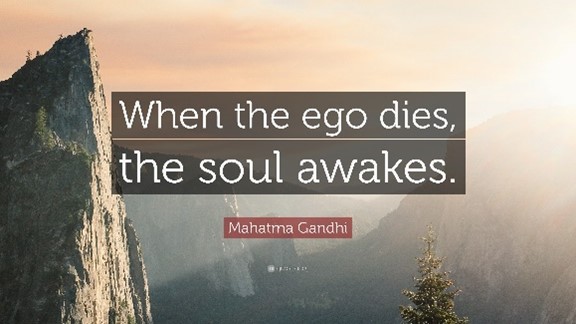When you look back on your life, can you identify instances in which your perspective significantly shifted?
It is my guess that these instances were inflection points that altered your trajectory, and they could be for either the positive or the negative.
For now, let’s focus on the positive shifts.
Can you quantify the value of that perspective shift?
I don’t know about you, but for me, these shifts have been invaluable. I can honestly say that my life would not be close to what it is had these shifts not occurred.

It is my guess that these instances were inflection points that altered your trajectory, and they could be for either the positive or the negative.
For now, let’s focus on the positive shifts.
Can you quantify the value of that perspective shift?
I don’t know about you, but for me, these shifts have been invaluable. I can honestly say that my life would not be close to what it is had these shifts not occurred.
It is my guess that you feel similarly, and I would love if you could share at least one meaningful perspective shift that you have experienced and how valuable it has been to you in the comments below.
Let me start by sharing a couple of my own perspective shifts.
Shift #1
For much of my life, I viewed my different jobs as my employer paying me for my time. With this perspective, I would show up to work when they wanted me to and do the work/accomplish the goals that they wanted me to do/accomplish. Generally, I think I did a good job, but looking back with a new perspective, I have to acknowledge it was limited.
My perspective shifted when I started my own business and started hiring people. From this side of the employment relationship, in my mind, I wasn’t “paying them for their time.” Instead, hiring them was an investment in my business. Yes, I wanted their time, but more importantly, I wanted them to add value to my business. In fact, if someone I hire isn’t adding value to my business, it is a clear sign I need to cut ties.

I have now tried to take this to heart as an employee and consultant. Instead of seeing my job as a trade for time, I now see it as an opportunity to add value. For me, this means that I feel like I bring more heart and purpose to my job.
In mindset speak, this is one way that I have seen a shift in myself from a prevention mindset (comfort-centered) to a promotion mindset (purpose-centered) that allows me to have a greater impact on the organizations I work for and with.
Shift #2
Also, for much of my life, I viewed others as not doing the best they can. This meant that when:
- I felt someone was underperforming (e.g., showed up late for work)
- I saw a homeless person asking for assistance
- Someone behaved in a way I didn’t agree with (e.g., had different beliefs)
…I would assume that they weren’t doing their best and should be doing better. In other words, I was quick to be critical of them. The result of this was that I was quick to be judgmental, insensitive, and condescending.
I don’t think this led me to do anything egregious, but now that I know better, it has led to the heartache of regret because I now see how I unnecessarily caused pain in others because of my judgments and insensitivity.
A shift in my perspective came when I read Brené Brown’s book, Rising Strong: How the Ability to Reset Transforms the Way We Live, Love, Parent, and Lead.
I write about this in greater detail here, but in this book, she invited me to try to see others as doing the best that they can.
This small shift has changed my life and every single one of my relationships and interactions. Now when
- I feel someone is underperforming (e.g., showed up late for work)
- I see a homeless person asking for assistance
- Someone behaving in a way I didn’t agree with (e.g., had different beliefs)
…I don’t get critical of them, I get curious. What is going on or has gone on in their life to lead to where they are now? In instances like this, rather than get critical like I used to, I am much more inclined to become empathic, which allows me to live more closely to my ideal self.

In mindset speak, this represents a shift from an inward mindset to an outward mindset that allows me to be more of my ideal self: someone who has a positive influence on others.
The Value of Perspective Shifts
Again, if you have experienced perspective or mindset shifts, I would love it if you could share below in the comments, and include the impact the shift has had on your life.
As I consider the value and impact the shifts above have had on my life, I would have to say that they have been “priceless.” I almost feel like I should be willing to pay nearly any amount of money to create these shifts, and it makes me wonder: “What other shifts do I need to make?”
I think this is one reason why I love focusing on mindsets in my consulting and coaching. It is an opportunity for me to help others experience invaluable perspective shifts that bring out more of their best.[/fusion_text][/fusion_builder_column][/fusion_builder_row][/fusion_builder_container]










